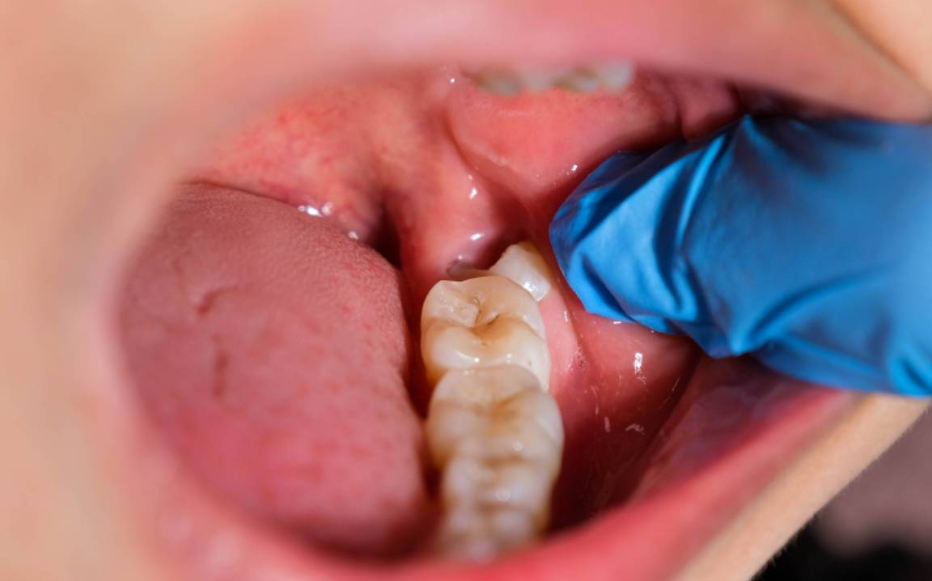Wisdom teeth, those enigmatic molars that typically emerge in late adolescence or early adulthood, can often become a source of discomfort and dental complications. Among the myriad issues that can arise with these teeth, wisdom tooth infection are particularly common and troublesome. Understanding the underlying causes of these infections is crucial for both prevention and effective management.
This article delves into the factors that contribute to wisdom tooth infections and outlines practical steps to mitigate the risk of developing such complications.
Understanding Wisdom Tooth Infections
A wisdom tooth infection, also known as pericoronitis, occurs when the area surrounding a partially erupted wisdom tooth becomes inflamed and infected. This condition can manifest when there is insufficient space in the mouth for these teeth to emerge properly, leading to a scenario where the gums may become trapped over the tooth. This gum flap can collect food particles and bacteria, creating an environment ripe for infection. The symptoms can vary from mild discomfort to severe pain, swelling, and even fever, depending on the severity of the infection.
The anatomy of the mouth plays a significant role in the development of these infections. Wisdom teeth are located at the back of the mouth, making them difficult to clean thoroughly. This lack of accessibility means that food and plaque can accumulate, leading to bacterial growth. The immune response to this bacterial invasion can exacerbate the situation, causing inflammation and further complications. It is essential to recognise these signs early on, as untreated infections can lead to more severe dental issues, including abscess formation or the spread of infection to surrounding tissues.
Factors Contributing to Wisdom Tooth Infections
Several factors can contribute to the likelihood of developing a wisdom tooth infection. One of the primary factors is the position of the wisdom teeth themselves. If they are impacted, meaning they are unable to fully emerge due to a lack of space, they can create pockets where bacteria thrive. Impacted wisdom teeth are often angled improperly, either pushing against neighbouring teeth or remaining trapped beneath the gums. This positioning not only makes proper oral hygiene challenging but also increases the risk of infection.
Another significant factor is poor oral hygiene. Regular brushing and flossing are essential to maintaining dental health, and neglecting these practices can lead to plaque buildup around the wisdom teeth. Bacteria in plaque can infect the gums, leading to inflammation and subsequent infection. Moreover, dietary choices can influence oral health. A diet high in sugars and carbohydrates can exacerbate plaque formation, making it easier for infections to take hold. Therefore, maintaining a balanced diet and limiting sugary snacks are vital components in preventing wisdom tooth infections.
Genetics also play a role in dental health. Some individuals may be genetically predisposed to have more significant dental issues, including the positioning of their wisdom teeth. If there is a family history of impacted wisdom teeth or frequent dental infections, it may be worthwhile to consult with a dental professional preemptively. Understanding one’s genetic predispositions can guide decisions about potential preventative measures, including early removal of wisdom teeth before complications arise.
Preventative Measures for Wisdom Tooth Infections
Preventing a wisdom tooth infection begins with good oral hygiene practices. Regular brushing at least twice a day and flossing daily can significantly reduce the risk of plaque buildup around the wisdom teeth. Using an antibacterial mouthwash can further help in minimising bacterial growth, especially in areas that are difficult to reach with a toothbrush. It’s advisable to use a soft-bristled toothbrush to avoid irritating the gums, particularly if they are already swollen or inflamed.
Regular dental check-ups are another crucial element in prevention. These visits allow dental professionals to monitor the development of wisdom teeth and assess their positioning. If a dentist identifies a potential problem, such as impaction or insufficient space, they may recommend proactive measures, including the early extraction of wisdom teeth. This approach can prevent infections and complications down the line, sparing patients from discomfort and invasive treatment later.
In addition to oral hygiene and regular dental visits, being mindful of dietary choices can help in preventing infections. A balanced diet rich in vitamins and minerals supports overall dental health. Foods high in calcium, such as dairy products, and vitamin D are essential for maintaining strong teeth and gums. Conversely, reducing the intake of sugary foods can diminish the risk of plaque formation, thereby decreasing the likelihood of infection. Staying hydrated also plays a vital role; water helps wash away food particles and bacteria, promoting a healthier oral environment.
Recognising Symptoms and Seeking Treatment
Recognising the symptoms of a wisdom tooth infection early on is crucial for effective treatment. Common symptoms include swelling around the gums, persistent pain that may radiate to the jaw or ear, difficulty opening the mouth, and a bad taste in the mouth due to pus or decay. If any of these symptoms are present, it is essential to seek dental care promptly. Early intervention can often prevent the infection from worsening and leading to more severe complications.
Treatment for a wisdom tooth infection typically involves cleaning the affected area, addressing any underlying issues such as impacted teeth, and, in some cases, prescribing antibiotics to combat the infection. Pain management may also be necessary to alleviate discomfort while the infection is being treated. In severe cases, surgical intervention may be required to remove the wisdom tooth entirely, particularly if it is severely impacted or causing recurring infections.
In summary, understanding the causes and prevention strategies for wisdom tooth infections is vital for maintaining optimal oral health. By prioritising good hygiene practices, regular dental visits, and mindful dietary choices, individuals can significantly reduce their risk of encountering these painful and often disruptive infections. Recognising the signs early and seeking appropriate treatment ensures that any complications can be managed effectively, allowing for a healthier, pain-free future.





Comments